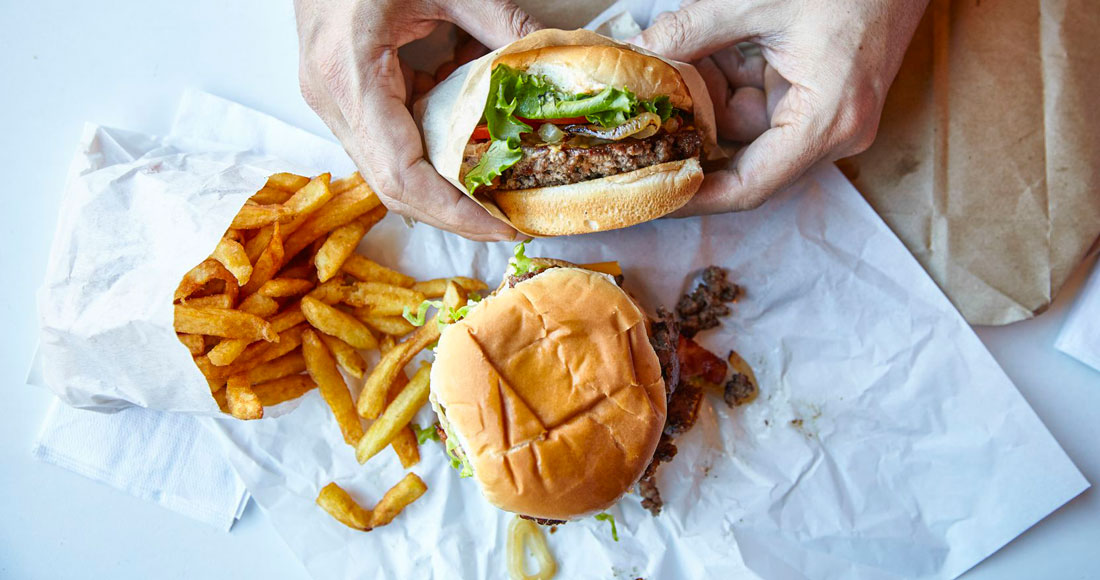You get home late, open the fridge door, make a mental note to go to the supermarket and order something from Uber Eats. You then kick back and relax, as some poor soul angel from heaven comes to deliver you a box of grease and sugar. You finish the fare, wipe your chin, and say, “Tomorrow is a new day.”
But is it?
Unfortunately, your waistline doesn’t take such resolutions into consideration, and neither does tomorrow morning’s workout. Fortunately, we have a strength and conditioning coach on hand, to tell us how bad the damage really is, and what you can do to mitigate it.
We hit up Jackson Privett, strength and conditioning coach at Precision Athletica, to get the low-down on how eating takeout affects your next workout. According to him, the number one impact it has will be physical.
As most takeout is greasy, sugary and salty, Jackson says that if you’re serious about your training, whether that be succeeding at the highest level of your sport or simply losing some weight; “You need to consistently be fuelling your body with the right food to achieve that desired intensity needed to improve.”
“As a Strength & Conditioning Coach, it’s vital that the athletes we work with consistently eat nutritious, vitamin dense foods if they want to continually train at the highest level of skill and intensity required to improve in their area of sporting expertise.”
That’s not to say athletes never experience moments of weakness: “I’ve experienced, both as a coach working with athletes and in my own training, the effect that a poor diet has on one’s ability to perform at a high intensity for a prolonged period of time, as well as the ability to adequately recover in between training sessions.”
At best this leaves you open to distraction; at worst it makes you vulnerable to an otherwise preventable injury.
Throughout these experiences, Jackson has noticed, “Eating takeaway food will not only make you feel slow and lethargic—but decreases the ability for you to adapt to the training stimulus you’re currently undertaking, meaning your improvements will slow down or diminish entirely.”
And that’s not all: there’s a mental impact too.
View this post on Instagram
As Jackson explains, “The brain requires a large amount of nutrients if it is to function effectively in sending signals down to the muscles to do what we need them to during exercise or competition.” So eating poor nutrient foods (like takeout), “Will have an impact on your ability to overcome adversity, ability to deal with stress, mood and overall energy levels.”
In other words: not good. But on those days when we’ve succumbed to temptation, is there anything we can do to mitigate these negative effects?
Kind of. Or rather: you can sharpen up your other healthy habits, to make up for your nutritional lapse, like making sure you get enough sleep. Not only that, but sleep may also help you avoid further binge sessions.
Jackson points out that: “There are lots of studies suggesting that a lack of sleep has a substantial effect on your cravings for calorie-dense foods such as takeaway foods… due to the presence of the hormone ghrelin, which is released in instances like this and stimulates our appetite.”
“When we get enough sleep, our ghrelin levels decrease and our leptin levels (which are responsible for both suppressing appetite and stimulating energy levels) increase, which is great for when we are training.”
All that aside, if you simply can’t outsleep your cravings for a sumptuous Pad Thai, Jackson says you can (somewhat) minimise the negative impact it will have on your fitness regime by eating it at the right time…
“If you’re going to eat takeout food, our best chance for it not to have a negative impact on your performance is to eat it close to when you’re about to do a workout, with around 1-2 hours before training our best bet in order to allow the body to digest the food. Whilst the amount of nutrients is very minimal, we can attempt to burn as much of the food as we can through intensive exercise.”
However, due to the number of calories generally found within takeout food, the chance that we’ll burn it all off within one training session is, according to Jackson, “Minimal at best.”
Challenge accepted.
